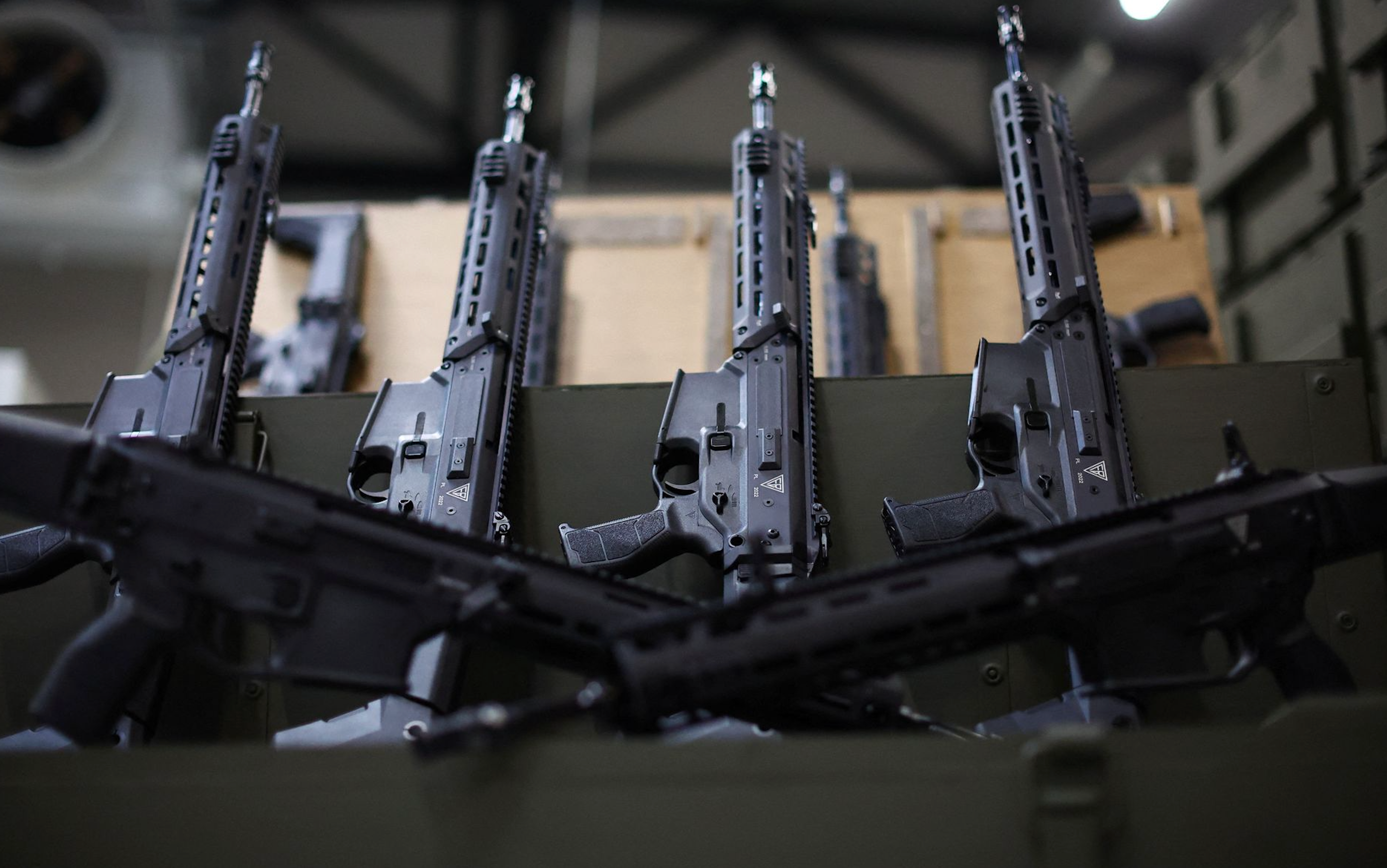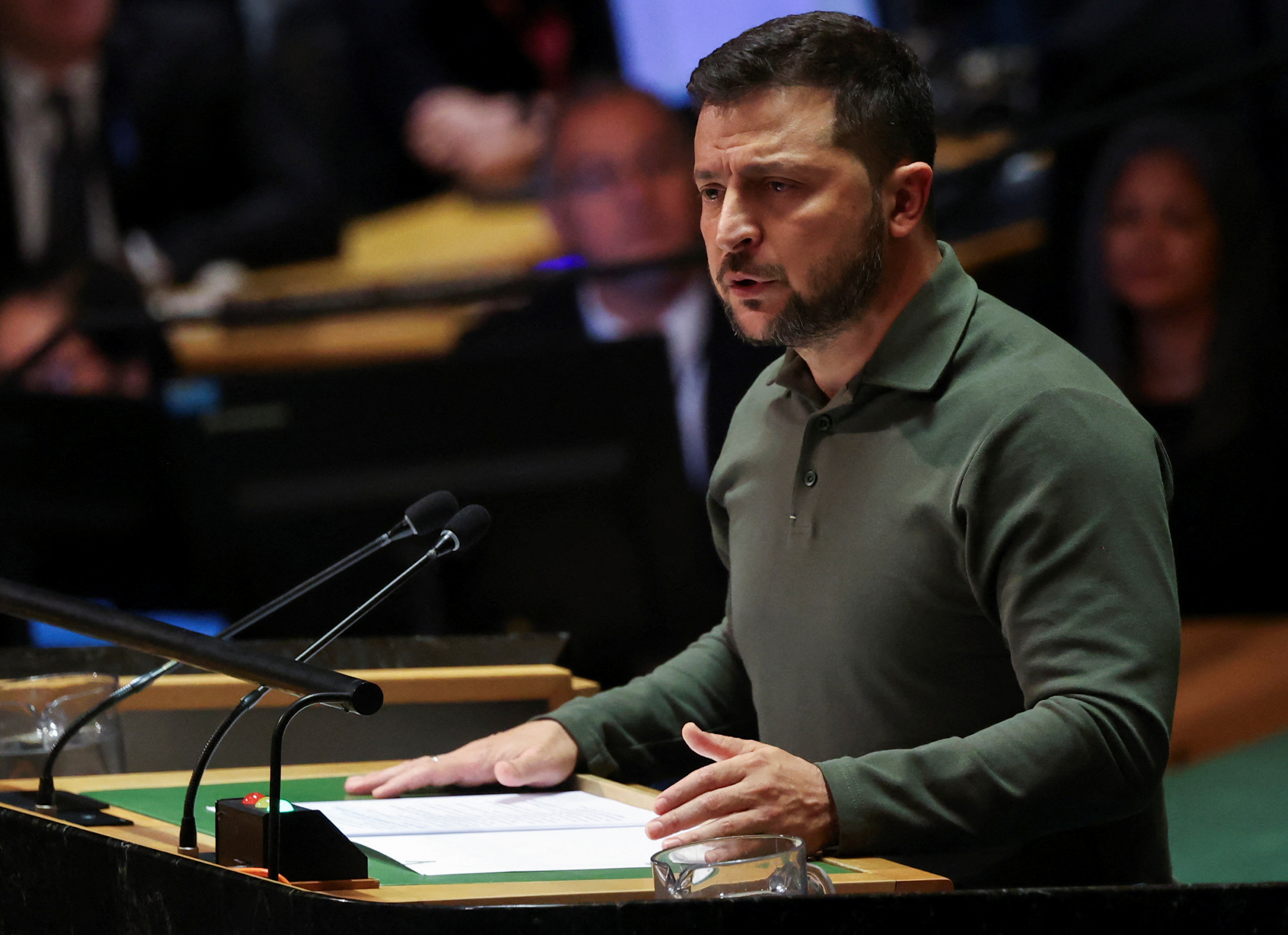
Trial begins for Colorado officers accused in Elijah McClain's death
PHOTO CAPTION: Randy Roedema, one of three Aurora police officers in addition to two paramedics criminally charged in the death of Elijah McClain, a Black man who died in 2019 after being subdued and injected with a sedative, approaches the Adams County Justice Center for a status hearing in Brighton, Colorado, U.S., April 15, 2022. REUTERS/Kevin Mohatt
By Brad Brooks
BRIGHTON, Colorado (Reuters) -Two Colorado police officers on trial for Elijah McClain's death ignored his cries for help as they restrained him, a prosecutor said on Wednesday in an opening statement at their trial, but defense lawyers said it was a fatal dose of a sedative administered by paramedics that killed the young Black man.
Lawyers for the two officers in the Denver suburb of Aurora also said one of them had seen McClain try to grab a fellow officer's gun during the struggle with police, justifying their efforts to restrain him.
Randy Roedema and Jason Rosenblatt went on trial for reckless manslaughter and second-degree assault in Adams County Court for the 2019 death of McClain, 23, who died several days after the incident. Roedema was suspended pending the outcome of the case, while Rosenblatt was dismissed.
One other officer and two paramedics involved in the incident will have separate trials in the coming months. All the police and paramedics charged in the case are white.
On the night of the encounter, McClain was walking home from a convenience store on Aug. 24, 2019. He was unarmed and appeared to be breaking no laws, but wore a ski mask and a winter coat on a warm evening. That triggered a 17-year-old bystander to call 911 and report him as acting suspiciously.
Three police arrived and nine seconds after confronting McClain they laid hands on him, according to the body camera video showed by the prosecution.
McClain resisted and tensed up, leading to a struggle and the accusation that he tried to grab an officer's gun, which prosecutors strongly denied.
Such an attempt does not appear on body camera video of the encounter, but Roedema can be heard yelling at Rosenblatt that McClain had reached for the officer's gun. Rosenblatt later told a supervisor that he did not feel McClain grabbing for the firearm.
Police quickly wrestled McClain to the ground, applied a "carotid" chokehold twice and handcuffed him, while McClain complained he could not breathe, vomiting repeatedly and choking.
Reid Elkus, Roedema's attorney, told jurors the officers had sufficient motive for taking McClain down and using the carotid hold because of his client's perception that McClain tried to grab Rosenblatt's gun.
"Just because a tragedy occurred, doesn't mean criminality occurred," Elkus told jurors.
GEORGE FLOYD PROTESTS
Initially no charges were brought in McClain's case, but it gained attention after the 2020 death of George Floyd at the hands of Minneapolis police sparked a summer of global protests over the mistreatment of African Americans and other minorities by U.S. law enforcement.
Using the same phrase repeated by Floyd, McClain told officers "I can't breathe" or made other pleas for help seven times, prosecutors said.
Harvey Steinberg, Rosenblatt's attorney, told the jury the only reason the trial was taking place at all was because of political pressure stemming from the Floyd protests.
Jonathan Bunge, a lawyer prosecuting the case for the state of Colorado, said McClain was "just walking home" with a plastic bag holding three cans of iced tea and listening to music with earbuds when confronted by police.
Bunge argued that police had operated without any reasonable suspicion and ignored their training by failing to de-escalate or properly check on McClain's well-being after applying the choke hold on him.
After police restrained McClain, paramedics injected him with an overdose of the powerful sedative ketamine, Bunge said. He then lapsed into cardiac arrest and died days later at a hospital.
A revised autopsy report in September 2022 concluded McClain died from "complications of ketamine administration following forcible restraint."
Defense lawyers told jurors they would show it was the ketamine injection given by paramedics that resulted in McClain's death.
They said body camera footage shows McClain was speaking even after the officers had held him down for 15 minutes, indicating he was alive when the emergency medical responders arrived and, they argue, took control of the scene.
No Black people were among the 12 jurors and two alternates chosen during a selection process that began on Friday.
After McClain's death, the Colorado attorney general determined that Aurora's police department routinely violated the law by engaging in racially biased policing and excessive use of force.
The city of Aurora agreed in November 2021 to pay McClain's family $15 million to settle a civil rights lawsuit.
(Reporting by Brad Brooks in Colorado; Additional reporting by Daniel Trotta in Carlsbad, Calif.; Editing by Donna Bryson, Chris Reese, Daniel Wallis and Michael Perry)











